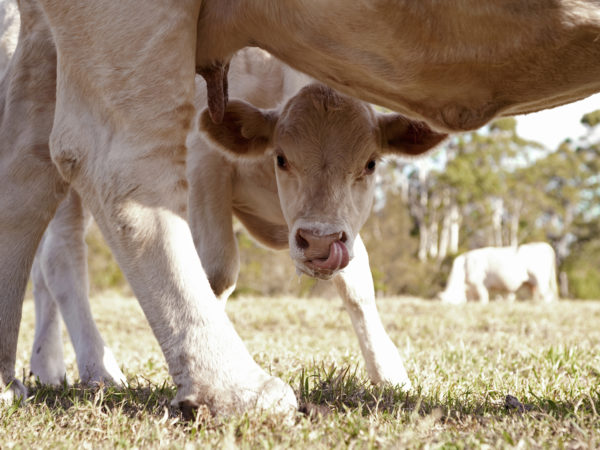Consider Cow's Colostrum?
Is there a benefit to bovine colostrum as a supplement?
Andrew Weil, M.D. | August 4, 2023

Humans and all other lactating mammals, including cows, produce colostrum, the first secretion from a mother’s breasts after the birth of a baby. Colostrum is a rich source of proteins and antibodies that confer temporary resistance to disease until the infant’s own immune system begins to function. I remain skeptical about most of the hype about using bovine colostrum as a supplement for humans, and I don’t recommend it for any purpose.
Bovine colostrum is collected from cows in the first milking after their calves are born. Ayurvedic physicians in India have been advocating the use of colostrum for thousands of years and, reportedly, Scandinavian farmers use it to make desserts to celebrate good health and the birth of healthy calves.
Bovine colostrum has also been sold for many years as a supplement in pill form and as powders, bars and liquids, but there is little evidence for the extravagant health claims made for it: that it burns fat, builds muscle, speeds healing of injuries, regulates blood sugar, boosts mood, treats everything from depression to gingivitis, and even cures the flu. The rationale behind inducements to buy the stuff is that after puberty, the human body produces less of the immune and growth factors needed to combat disease and heal damaged tissue. That may be true, but the science does not support the claim that taking supplemental colostrum can restore youthful levels of these substances.
One 2014 review looked at dozens of research papers on the topic and found very little support for any claimed health benefits of bovine colostrum supplementation in humans. A later study, in 2021, examined its use in very specific pediatric populations (pre-term babies, those with intestinal disorders, short-bowel syndrome, and necrotizing enterocolitis, among others) and found some evidence that it could reduce complications of prematurity, infection, and gut disorders. Those researchers concluded that larger clinical trials of infants would be needed before a general claim could be made about health benefits. I agree with that conclusion. A few small-scale animal studies suggest that bovine colostrum has antimicrobial activity, but the investigations were not well designed.
Bottom line: we need more and better studies before we can be sure of either the safety or efficacy of bovine colostrum supplements. Save your money.
Andrew Weil, M.D.
Sources
Rathe M, Müller K, Sangild PT, Husby S. Clinical applications of bovine colostrum therapy: a systematic review. Nutr Rev. 2014 Apr;72(4):237-54. doi: 10.1111/nure.12089. Epub 2014 Feb 26. PMID: 24571383. pubmed.ncbi.nlm.nih/24571383/
Sangild PT, Vonderohe C, Melendez Hebib V, Burrin DG. Potential Benefits of Bovine Colostrum in Pediatric Nutrition and Health. Nutrients. 2021 Jul 26;13(8):2551. doi: 10.3390/nu13082551. PMID: 34444709; PMCID: PMC8402036. pubmed.ncbi.nlm.nih/34444709/
Originally published November 2007. Updated August 2023.









